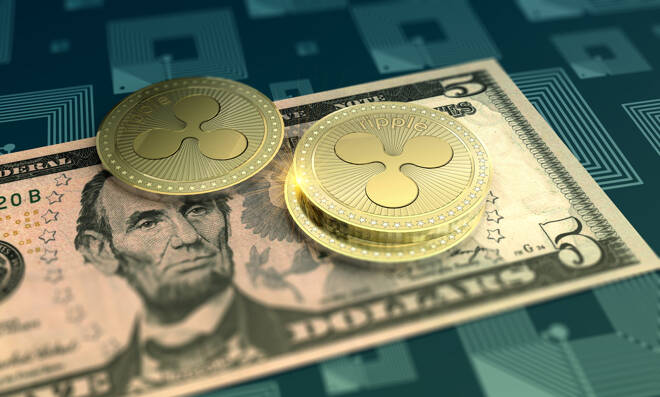Advertisement
Advertisement
Bitstamp to Halt U.S Trading of Ripple’s XRP in Response to SEC Lawsuit
By:
Ripple's woes continue as exchanges halt the trading and depositing. Bitstamp is the latest exchange to halt trading and deposit-taking for U.S customers.
Ripple’s XRP is facing an uphill battle to begin any major recovery near-term.
News hit the wires this week of exchanges halting the trading and deposit taking of Ripple’s XRP.
Back in 2017 and 2018, we saw cryptos buoyed by news of their inclusion on major crypto exchanges.
The reverse can be expected should trading and the exchanging of cryptos be halted on exchanges.
B2C2 halted the trading of Ripple’s XRP for its U.S customers, with Bitstamp announcing that it would remove the option for XRP trading and deposits for U.S customers on 8th January 2021.
The moves by the two exchanges come in response to the U.S SEC lawsuit against Ripple’s Lab. The SEC claims that Ripple’s Lab raised more than $1.3bn through an unregistered digital security.
Other platforms that have reportedly dropped Ripple’s XRP include OSL, Crosstower, and Beaxy.
The removal of XRP from exchanges ultimately leads to reduced liquidity ahead of any resolution to the lawsuit, which has sunk Ripple’s XRP back to sub-$0.30 levels.
For Ripple’s XRP and the broader market, the SEC move is a reminder of market sensitivity to regulatory risk.
At the time of writing, Ripple’s XRP was down by 0.13% to $0.29396. While up from a December low of $0.2000, Ripple’s XRP was is down by 627% from November’s high of $0.78716.
About the Author
Bob Masonauthor
With over 28 years of experience in the financial industry, Bob has worked with various global rating agencies and multinational banks. Currently he is covering currencies, commodities, alternative asset classes and global equities, focusing mostly on European and Asian markets.
Advertisement
